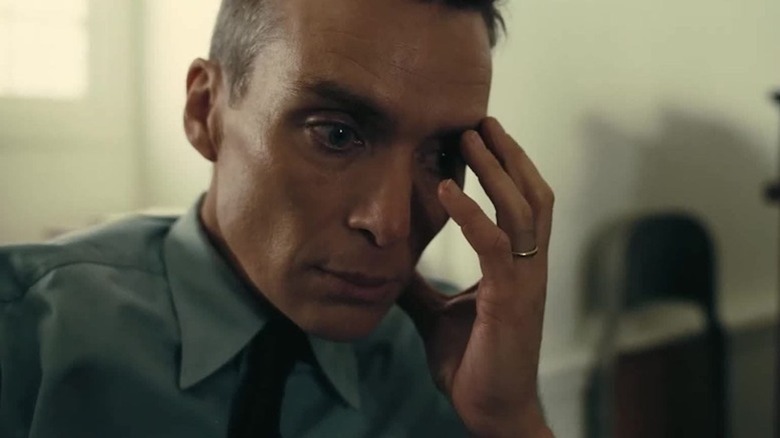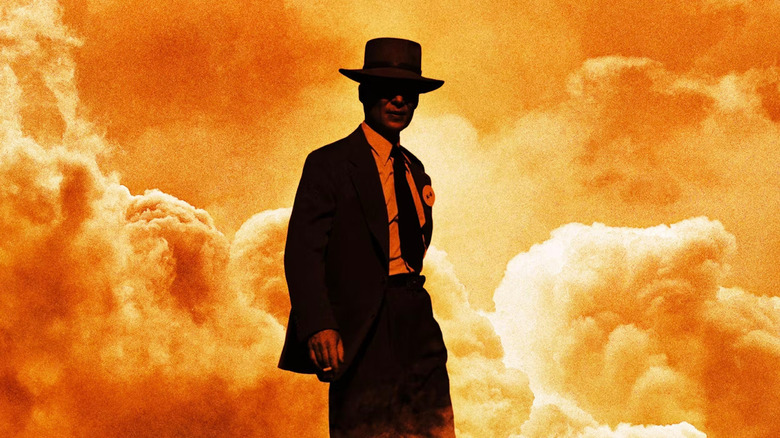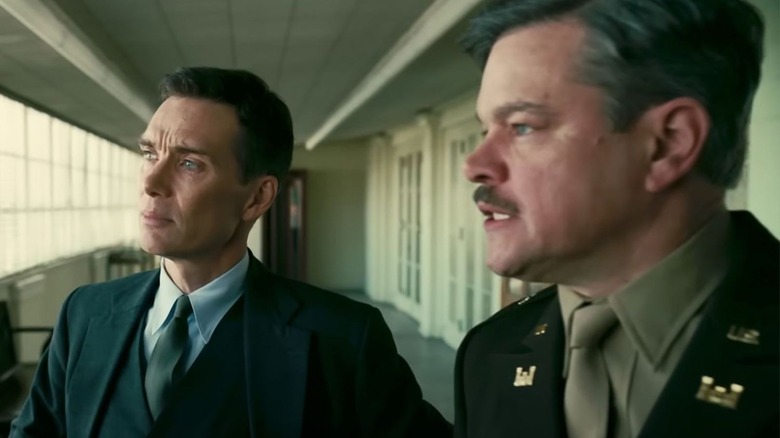Christopher Nolan Pulls A James Cameron, Says Don't Trust A.I.
Given the proliferation of ChatGPT over the last year, Artificial Intelligence has become the threat du jour to humankind. In micro, its use by lazy college students and conscienceless publishers to mimic expertise in term papers and clickbait articles doesn't feel apocalyptic, but when you consider that studios, networks, and streamers are eager to use it as a means of reducing human input into movies and shows meant to be enjoyed by living, breathing, sentient human beings, you begin to wonder what's in this for anyone other than billionaire tech brats and the soulless executives whose only concern is catering to shareholders. All they care about is "right-sizing" their business, which means paying as few people as little as possible.
All you need to do is look at what automation has done to the global workforce. Forrester projects that 63 million jobs in Asia Pacific (India, China, South Korea, Australia, and Japan) will be eliminated by 2040. Considering the steady growth of the planet's population, you don't need a high-school degree to see the problem here. Factor in the looming climate crisis, and your children/grandchildren are due to live through the boring, gradual societal collapse chapters of "The Road Warrior" and "Waterworld." If they're lucky, we'll set off a nuclear holocaust that subjects everyone to a year's worth of "Threads," and then who needs a workforce?
So let's, uh, look on the bright side like Christopher Nolan is! Even though the blockbuster auteur is a month away from unleashing "Oppenheimer" in theaters all over the globe, he's not entirely down on humanity's latest technological advances. As to AI, he thinks we're catastrophizing a tad. But he also shares James Cameron's view that the unfettered application of AI could hasten Skynet-like devastation. Let's dig into his observations.
I am become ChatGPT, destroyer of jobs
In an interview with Wired, Nolan initially pooh-poohed journalists' "partisan" consternation about AI. He views the ChatGPT freakout as a narrow-minded fear of self-preservation — which, yes, it is, but when you're on the cusp of 50 and see your life's worth of expertise being reduced to the regurgitation of Wiki-level insight to no one's tangible benefit, this freakout is not only earned, but righteous.
But then he addressed the broader implications, namely the corporate use of AI "as a means of evading responsibility for their actions." Cameron's Miles Dyson, the tragic father of Skynet, might sympathize with this. In any event, here's what Nolan told Wired:
"If we endorse the view that AI is all-powerful, we are endorsing the view that it can alleviate people of responsibility for their actions—militarily, socioeconomically, whatever. The biggest danger of AI is that we attribute these godlike characteristics to it and therefore let ourselves off the hook. I don't know what the mythological underpinnings of this are, but throughout history, there's this tendency of human beings to create false idols, to mold something in our own image and then say we've got godlike powers because we did that."
Steady as the AI goes
Cameron didn't let humanity off the hook, at least what little was left of it after Skynet became self-aware. And the subject of Nolan's upcoming movie, J. Robert Oppenheimer, certainly didn't cut himself much slack for creating the atomic bomb. Taking responsibility after the big invention wreaks havoc on the planet has never been an issue. It's tapping the brakes before everything goes haywire that's frustratingly difficult. And in the case of AI, there's every reason for media companies that care only about the quantity of content to keep plowing ahead.
Still, Nolan sees the positive potential of AI, even as an "old analog fusty filmmaker." As he told Wired:
"I shoot on film. And I try to give the actors a complete reality around it. My position on technology as far as it relates to my work is that I want to use technology for what it's best for. Like if we do a stunt, a hazardous stunt. You could do it with much more visible wires, and then you just paint out the wires. Things like that."
The only possible problem here is reducing the adrenaline rush for risk-taking stunt performers. These folks a thrill-seekers by nature, and love contributing to the magic act that is making a movie or TV show. There is no substitute for practical stunt work, just as there is no substitute for lived human experience when it comes to writing a screenplay or playing a role. I hope the Nolans of the world can convince their paymasters to use AI responsibly, but my lived human experience tells me that they'll find a way to screw it all up as massively and irreparably as possible.


